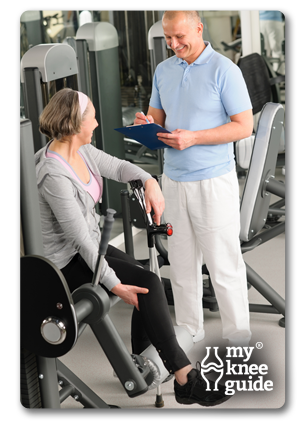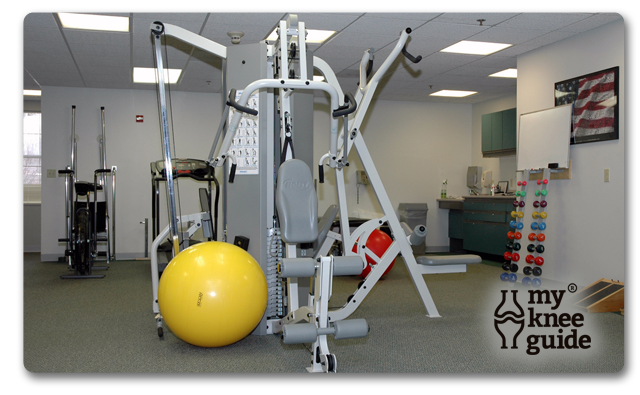
There are several goals of physical therapy when rehabbing a knee with arthritisknee with arthritis. The first is to increase the motion of the kneemotion of the knee. Better motion will allow you to more easily climb stairs, reach down to the ground, and climb in and out of bed.


Secondly, physical therapy can help you strengthen the quadriceps and hamstring muscles. This increased strength is a key factor to help prevent the knee from giving out if a sudden spike of pain occurs. Therapy will also increase the endurance of these muscles. A couple of weeks of supervised physical therapy will improve your understanding of how to perform the exercises. An important component of this is to learn a good home program that will help to maintain and improve upon the supervised physical therapy.
Generally, non-impact exercises are recommended. This includes the use of a stationary bicycle, elliptical machine, or pool exercises. Make sure to visit the home exercisehome exercise module to learn relatively simple exercises that can be done while lying, sitting and standing.

Other modalities such as cold and heat therapy can be used in conjunction with your exercise program. It is frequently helpful to apply a warm compress or heating pad before exercising. This will help to loosen a stiff knee. A warm shower can also be effective to help reduce joint stiffness. After an exercise session on an arthritic knee, mild discomfort could occur. A cold compress or cold packcold pack will help reduce swelling and inflammation. Cold can also relieve pain by numbing the area. Remember not to apply heat or cold directly to the skin to reduce the chance of burns or frostbite. Avoid applying heat or cold for longer than 20 minutes at a time.

Utilizing physical therapy services prior to knee replacement will also help decrease the need for a skilled nursing facility, home health agency or inpatient rehabilitation after surgery. By performing knee replacement “prehabiliation,”knee replacement “prehabiliation,” there is a 29% reduction in the need for these post-operative care services.














